Countries meeting in Dubai for the third Conference on Aviation and Alternative Fuels (CAAF/3) have agreed a global framework to support the clean energy transition of the aviation sector that will be required to achieve its current objective of net zero carbon emissions by 2050. In the new ICAO Global Framework for Sustainable Aviation Fuels (SAF), Lower Carbon Aviation Fuels (LCAF) and other Aviation Cleaner Energies, such as hydrogen and electricity, Member States have agreed a ‘Vision’ to achieve an aspirational global interim goal of a 5% reduction in the carbon intensity of aviation fuel by 2030. The collective goal recognises that some States will be able to move quickly whereas others will take longer and require capacity-building assistance, finance and time to develop the necessary infrastructure. The agreement has been welcomed by industry, which expects the move to lead to supportive government policies and send a strong signal to investors and the traditional energy sector.
Key elements of the Framework agreement reached at CAAF/3 include a collective Vision for the clean energy transition, harmonised regulatory foundations, supporting implementation initiatives and improved access to financing so that, in ICAO parlance, “No country is left behind”.
Commenting on the outcome, ICAO Council President Salvatore Sciacchitano said: “The role of the Framework is to facilitate the scale-up of the development and deployment of SAF, LCAF and other aviation cleaner energies on a global basis, and mainly by providing greater clarity, consistency and predictability to all stakeholders, including those beyond the aviation sector.
“Investors, governments and others all need greater certainty regarding the policies, regulations, implementation support and investments required so that all countries will have an equal opportunity to contribute to, and benefit from, the expansion in the production and use of these fuels and the expected emissions reductions they will lead to.”
Haldane Dodd, Executive Director of the cross-industry Air Transport Action Group said it was another milestone event for the sector, following the adoption at last year’s ICAO Assembly of the Long Term Aspirational Goal of net zero carbon emissions by 2050. He said the agreement would “add another layer of certainty” in the shift towards the replacement of fossil fuels by SAF and unlock the significant capital investment needed, which ICAO estimates at $3.2 trillion.
“Aviation has provided a near-term objective and the global framework,” said Dodd. “Now it is up to the finance community and energy sector to support the necessary infrastructure and start delivering SAF in ever increasing quantities.”
IATA Director General Willie Walsh said the setting of a goal with a shorter 2030 time horizon was ambitious. “To that end, the CAAF/3 agreement signals to the world in no uncertain terms the need for policies that enable real progress. There is no time to lose. IATA now expects governments to urgently put the strongest possible policies in place to unlock the full potential of a global SAF market with an exponential increase in production.”
IATA pointed out that all SAF produced in 2022 had been bought by airlines at an additional cost of $500 million because of the price premium over conventional jet fuel, and yet the availability of SAF was expected to be limited to 0.2% of jet fuel consumption in 2023. Airline forward purchase agreements for SAF are worth around $45 billion in total, well in excess of SAF availability, it said.
“Airlines are ready with open arms to catch the resulting SAF production,” said Marie Owens Thomsen, SVP Sustainability and Chief Economist. “While airlines are at the sharp end of decarbonisation, they cannot bear the burden alone. CAAF/3 has again made it clear that aviation’s decarbonisation will require the wholehearted and united efforts of the entire value chain as we all focus on net zero by 2050. To be perfectly clear, where government money leads, private money will follow. It is absolutely essential that governments play their part, and we will certainly play ours.”
The adopted Global Framework is built across four interconnected building blocks: policy and planning, regulatory frameworks, implementation support and financing. The ‘Vision’ of a collective 5% emissions reduction goal in international aviation (an earlier draft had the goal ranging from 5 to 8 per cent) is to be continually monitored and periodically reviewed through an annual ICAO stocktake and the convening of a CAAF/4 that should take place no later than 2028. ICAO, with the contribution of its technical body CAEP, is required to identify and develop methodologies for monitoring progress.
To ensure environmental integrity, the CORSIA sustainability criteria, sustainability certification and the methodology for the assessment of lifecycle emissions used for CORSIA eligible fuels should be used as the accepted basis for the eligibility of sustainable fuels used in international aviation. With CAEP, the framework requires ICAO to undertake a study of fuel accounting systems for international aviation currently used in the open market, which is to include preliminary exploration of the book-and-claim concept.
The framework requires ICAO to urgently put in place the necessary structure and capability of the proposed ICAO Finvest Hub, through which a platform will be developed to connect aviation decarbonisation projects with potential public and private investors, and collaborate with financial institutions, such as development banks, to create pathways for the funding of projects.
A statement by the UK government, which had convened on the first day of CAAF/3 a meeting of the 62-country International Aviation Climate Ambition Coalition, an initiative it set up at COP26 in 2021, said the compromise agreement would enable countries across the world to develop their own SAF industries, “turning cleaner flying into a reality worldwide”.
Added Aviation Minister Anthony Browne: “While the UK sought to secure greater ambition, this is a significant moment in our path to sustainable flying. The UK remains steadfast in its commitment to decarbonise international aviation. This deal shows that when the world comes together and cooperates, we can bring about real change.”
Photo: ICAO


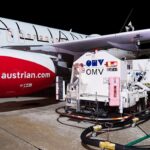
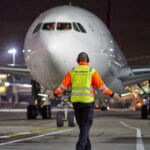
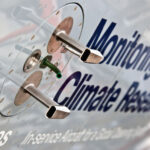



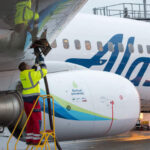
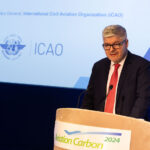



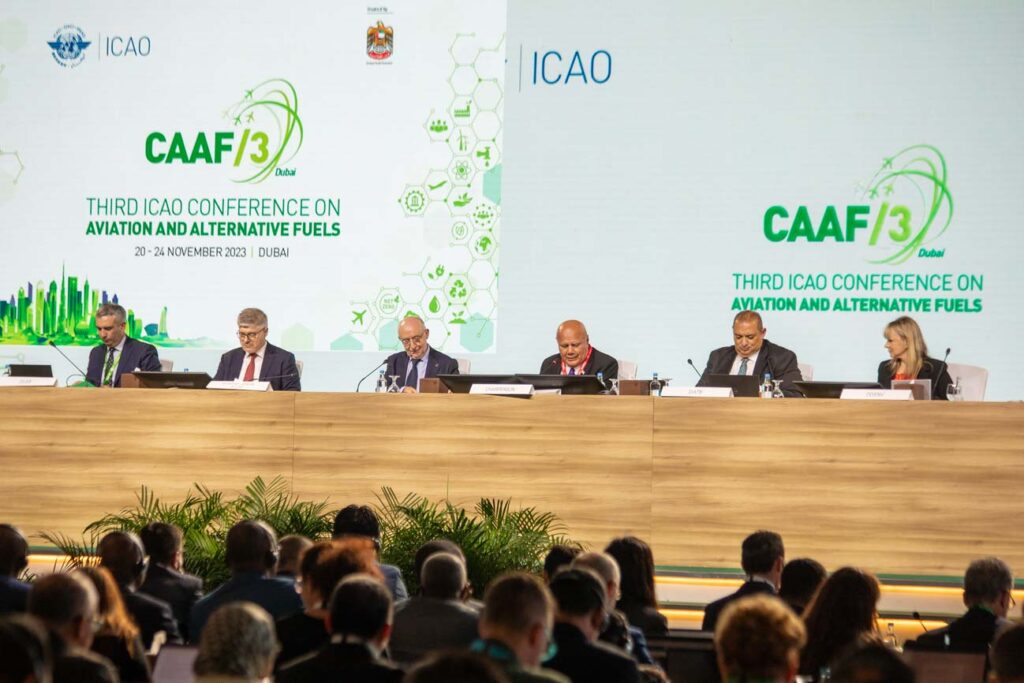
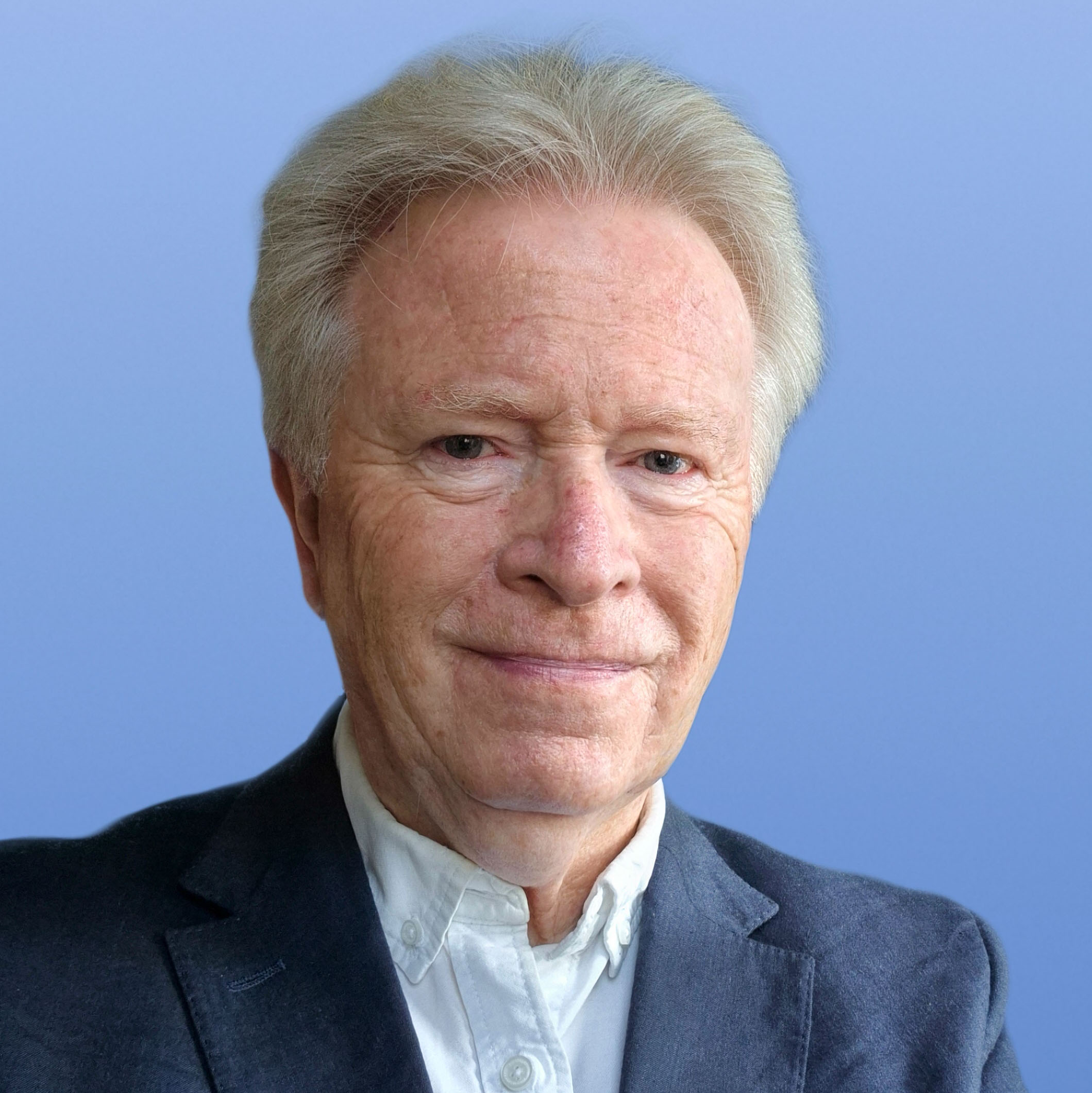

More News & Features
Progress on decarbonising the airline sector has been slow this year, says IATA chief
EASA releases status report on Europe’s SAF production and readiness to meet blending targets
Financing will be paramount for achieving our collective goals for a net zero future, says ICAO Secretary General
New partnerships formed to drive e-SAF production in Nordic markets
IAG continues to go big on e-SAF as it inks 10-year offtake agreement with Infinium
US on the pathway to achieving its 2030 SAF Grand Challenge target, says DOE report